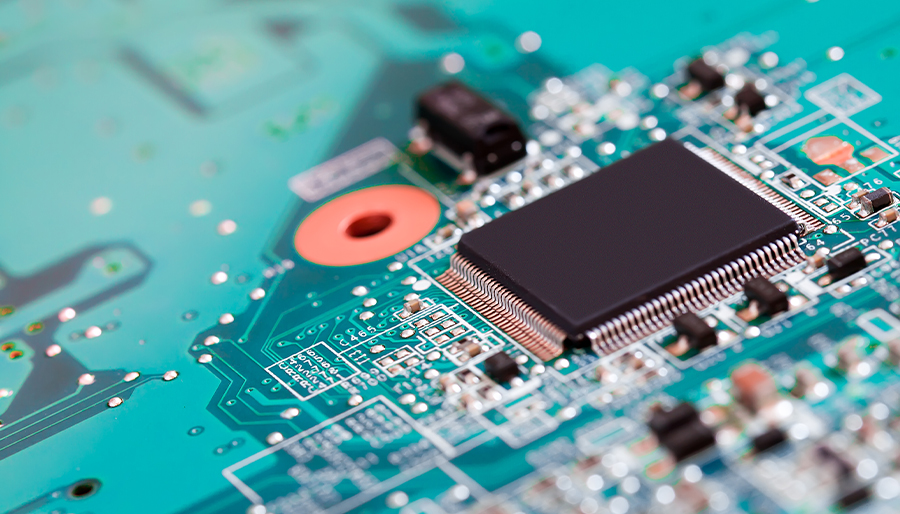
Coatings have multiple importance in electronic components. They not only provide protection and corrosion protection, but also affect the conductivity, insulation, weldability, packaging, aesthetics and functionality of the components. Excellent coating technology can improve the performance and reliability of electronic components. In the electronic components industry, common coating types include tin plating, nickel plating, gold plating, silver plating, copper plating, zinc plating, silver nickel plating, etc.
High-quality coating is one of the important factors to ensure the quality of electronic components, so the detection of coating thickness is crucial. Coating thickness gauge is a common testing instrument in the electronic components industry. It can improve the quality and reliability of products and ensure that the coating meets the design requirements, thus promoting the development and innovation of the electronic components industry.

Lead frame, as the chip carrier of integrated circuits, is an important basic material in the electronic information industry.
In order to ensure the chip mounting/bonding performance in the packaging process, special surface treatment is required for the lead frame. Common lead frame coating elements include gold, silver, palladium, nickel, etc. In recent years, according to the needs of the industry, the coating in the lead frame has become thinner and thinner. The high-precision X-ray fluorescence analyzer developed by LANScientific is suitable for this extremely difficult testing application and can measure the thickness and composition of the coating at the same time, and high repeatability measurement results can be obtained in a short time.
Learn more → 《Application of INSIGHT Coating Analyzer in Lead Frame Detection》

A connector is a device that provides connection and separation functions, and plays the role of electrical connection and signal transmission between devices and components, components and mechanisms, systems and subsystems. Generally, connectors consist of contacts, insulators, shells, seals, connecting rings (or guide keys) and cable accessories.
In the electronics and electrical industry, the use of protective and wear-resistant coatings for electrical contacts is growing. Contacts are the core components of electrical connectors. Surface treatment can improve the corrosion resistance and wear resistance of the contacts, and can also optimize the transmission function of the contacts to a large extent. The base material of electrical connector contacts is generally copper alloy, and commonly used plating layers include: tin plating, gold plating, silver plating, nickel plating, palladium plating, etc.

PCB (Printed Circuit Board), also known as printed circuit board or printed circuit board, is the support body of electronic components. The current circuit board mainly consists of Pattern, Dielectric, Through hole / via, Solder resistant / Solder Mask, Legend / Marking / Silk screen, Surface Finish, etc.
The basic purpose of PCB surface treatment is to ensure good solderability or electrical performance. Common processes include hot air leveling, organic coating OSP, electroless nickel/immersion gold ENIG, immersion silver, immersion tin and electroplating nickel gold. The coating thickness gauge can quickly, efficiently, non-destructively and accurately analyze the thickness and composition of PCB coatings of different shapes.
Learn more → 《Application of INSIGHT Coating Analyzer in PCB Plant》